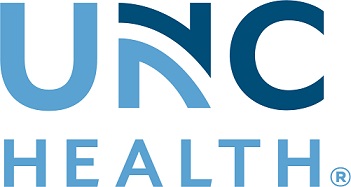Newswise — Chapel Hill, NC – People under the age of 30 account for the majority, or 40 percent, of new HIV infections in the United States. This age group is also more likely than adults to own a smartphone and use this device to download apps and access health information. Recognizing adolescents’ connection with mobile technology, a research team at the University of North Carolina at Chapel Hill, along with colleagues at Emory University, has secured $18 million in funding over the next five years from the National Institutes of Health to form the UNC/Emory Center for Innovative Technology or iTech.
“iTech will facilitate the execution of six research studies. Each study will use technology to address a barrier to the HIV care continuum,” said Lisa Hightow-Weidman, M.D., M.P.H., associate professor of medicine and principal investigator of the Behavior and Technology (BAT) Lab at UNC. “For youth at risk of becoming infected with HIV, we will develop apps that aim to increase HIV testing, and use of and adherence to pre-exposure prophylaxis (PrEP) to prevent HIV. For youth who test positive for the virus, we will develop electronic health interventions to engage them in care and improve adherence to antiretroviral therapy.”
Based at UNC, iTech includes seven sites around the US, allowing researchers to collaboratively develop the center’s health interventions. These health interventions will target 15-24-year-olds at risk for or currently living with HIV, specifically young men who have sex with men (YMSM). In 2010, YMSM accounted for 72 percent of new HIV infections among people aged 13-24. Hightow-Weidman said HIV disproportionately impacts African American and Latino YMSM; therefore, these groups will be a major focus of iTech’s interventions.
“Despite recommendations that high risk youth receive an HIV test at least annually, many YMSM have not been tested in the last year and more than half of youth with HIV are unaware of their infection,” Hightow-Weidman said. “Barriers to testing among youth include misperception of individual risk, fear of testing positive, concerns about confidentiality and access to healthcare services. Developing interventions to improve the uptake of HIV testing and facilitate entry into prevention and care services is the goal of our iTech studies.”
The award for iTech is one of three U19 applications funded by the NIH’s Eunice Kennedy Shriver National Institute of Child Health and Human Development to support the new Adolescent Medicine Trials Network (ATN). UNC’s Gillings School of Global Public Health also received funding for a U24 award to serve as the ATN’s Coordinating Center. The center will serve as the central resource for network communications, cataloging of biosamples, and data management.
The mission of UNC’s Institute for Global Health & Infectious Diseases is to harness the full resources of the University and its partners to solve global health problems, reduce the burden of disease, and cultivate the next generation of global health leaders. Learn more at www.globalhealth.unc.edu.
####
MEDIA CONTACT
Register for reporter access to contact detailsArticle Multimedia
CITATIONS
U19HD089881
